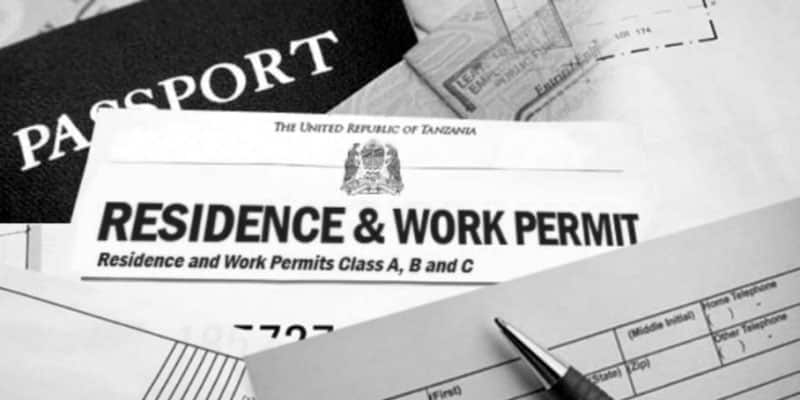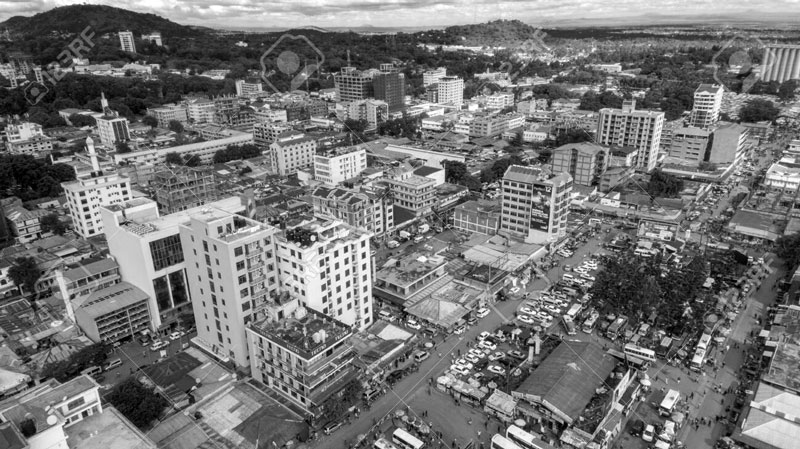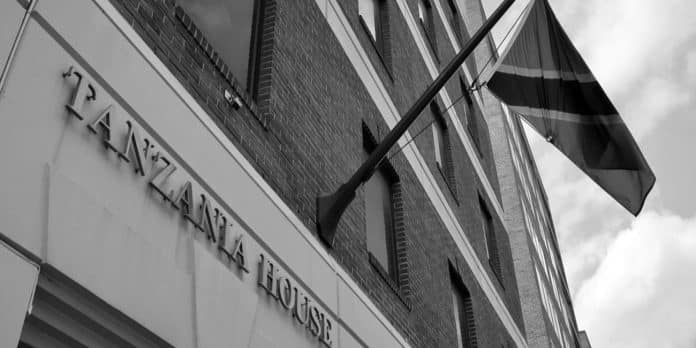A Comprehensive Guide to Residing in Tanzania: All You Need to Know About Visas and Immigration
Are you considering a move to Tanzania? Whether you’re planning to work, study, or retire in this vibrant East African country, understanding the visa and immigration requirements is crucial. In this comprehensive guide, we will provide you with all the essential information you need to navigate the complexities of countries resided Tanzania visa. From the different types of visas available to the application process, we will break it down step by step, ensuring that you have a clear understanding of the requirements and procedures involved. Additionally, we will explore important topics such as work permits, residency permits, and the various immigration policies in place. So, whether you’re dreaming of exploring the stunning landscapes of Serengeti National Park, immersing yourself in the rich culture of Zanzibar, or embarking on a new professional journey, let us be your trusted resource on your path to residing in Tanzania.
Visas and Immigration in Tanzania
Tanzania offers various types of visas that cater to different purposes of visit. The most common visas are tourist, business, and student visas. The tourist visa allows visitors to explore Tanzania for a specified period, while the business visa is suitable for individuals planning to engage in commercial activities. A student visa is required for those pursuing educational opportunities in the country. Each visa has its own requirements and duration of stay, so it is essential to determine the most suitable visa for your specific needs.
To obtain countries resided Tanzania visa, you can apply at the nearest Tanzanian embassy or consulate in your country of residence. The application process typically involves filling out an application form, providing necessary documents such as a valid passport, proof of accommodation, return ticket, and proof of sufficient funds for the duration of your stay. It is advisable to apply for your visa well in advance to allow for processing time. Once approved, you will receive a visa sticker or stamp on your passport, allowing you entry into the country. It is important to note that visa regulations may change, so it is always recommended to check with the relevant authorities or consult a professional immigration advisor for the most up-to-date information.
In addition to the standard visas, there are other specialized visas available, such as the volunteer visa, research visa, and journalist visa. These visas cater to individuals who wish to engage in specific activities within Tanzania. It is crucial to understand the requirements and restrictions associated with these visas to ensure compliance with Tanzanian immigration laws.
Work Permits and Residence Permits in Tanzania
As a worker coming to work and living in this country, you must have a work permit. The work permit is granted to individuals who have secured employment with a Tanzanian company or organization. The process involves your prospective employer applying for the work permit on your behalf. The employer will need to provide relevant documents, such as an employment contract, proof of company registration, and proof of their ability to pay the employee’s salary. The work permit is typically valid for a specified period and can be renewed if necessary.

For individuals planning to reside in Tanzania for an extended period, you must have a countries resided Tanzania visa, also known as a residence permit may be required. The residence permit allows individuals to live and work in Tanzania for a longer duration. There are different categories of residence permits, such as the Class A permit for investors, Class B permit for employees, and Class C permit for dependents of individuals with residence permits. Each category has its own requirements and conditions that need to be met.
To apply for a residence permit, you will need to submit the required documents, including a valid passport, a completed application form, a medical certificate, proof of accommodation, and proof of financial means to support yourself during your stay. The application will need to be submitted to the Immigration Department in Tanzania. It is advisable to consult with an immigration lawyer or a professional advisor to ensure a smooth application process and compliance with all the necessary requirements.
Legal Requirements for Residing in Tanzania
When residing in Tanzania, it is important to be aware of the legal requirements and obligations. As a foreigner, you are expected to abide by Tanzanian laws and regulations. This includes respecting local customs, traditions, and cultural sensitivities. It is advisable to familiarize yourself with Tanzanian laws, especially those related to employment, taxation, property ownership, and business activities, if applicable.
Foreigners residing in Tanzania are required to register their presence with the local authorities. This process involves obtaining a residence permit or a resident identification card, depending on the duration of stay. Failure to register your presence may result in penalties or legal complications. It is advisable to seek guidance from the Immigration Department or a professional advisor to ensure compliance with the registration process.
It is also important to ensure that you have the necessary health insurance coverage while residing in Tanzania. The healthcare system in Tanzania may not be as developed as in some other countries, so having adequate insurance can provide you with peace of mind. Additionally, it is recommended to keep important documents such as passports, visas, and identification cards in a secure place to avoid any potential loss or theft.
Healthcare and Insurance for Expatriates
As an expatriate residing in Tanzania, it is essential to prioritize your health and well-being. The healthcare system in Tanzania consists of both public and private healthcare facilities. While the public healthcare system is available, it may not always meet international standards, especially in remote areas. Therefore, many expatriates choose to utilize private healthcare facilities, which offer a higher level of care and a wider range of services.
It is advisable to have comprehensive health insurance that covers medical expenses, emergency evacuation, and repatriation. This ensures that you have access to quality healthcare services without incurring significant out-of-pocket expenses. Before selecting an insurance provider, it is recommended to research and compare different options to find a plan that suits your needs and budget.
In addition to health insurance, it is also important to take necessary precautions to maintain good health while residing in Tanzania. This includes staying up to date with vaccinations, practicing good hygiene, and taking necessary precautions against diseases such as malaria. It is advisable to consult with a healthcare professional or travel clinic before traveling to Tanzania to receive appropriate medical advice and vaccinations.
Education System in Tanzania
If you are moving to Tanzania with your family or planning to pursue education opportunities, it is important to understand the education system in the country. Tanzania has a formal education system consisting of primary schools, secondary schools, and tertiary institutions.
Primary education is compulsory and free in Tanzania, with children typically starting school at the age of six. Secondary education is divided into two cycles, Ordinary Level (O-Level) and Advanced Level (A-Level). After completing secondary education, students can pursue tertiary education at universities, colleges, or vocational training institutions.
Tanzania has both public and private schools, with the majority being public institutions. The quality of education may vary between schools, so it is advisable to research and choose a reputable institution that aligns with your educational goals and requirements. It is also recommended to inquire about the admission process, curriculum, teaching standards, and extracurricular activities when selecting a school for your children.
For expatriate families, there are international schools available in Tanzania that offer education following international curricula, such as the International Baccalaureate (IB) or British Curriculum. These schools cater to the needs of expatriate children and provide a familiar educational environment. However, it is important to note that international schools often have higher tuition fees compared to local schools.
Cost of Living in Tanzania
Understanding the cost of living in Tanzania is essential when planning to reside in the country. The cost of living can vary depending on the location, lifestyle, and personal preferences. Generally, major cities such as Dar es Salaam and Arusha have a higher cost of living compared to rural areas.

Housing is one of the significant expenses in Tanzania. Rental prices can vary significantly depending on the location, size, and quality of the property. It is advisable to research the rental market, consider your budget, and factor in additional costs such as utilities, maintenance, and security.
Other daily expenses such as groceries, transportation, healthcare, and leisure activities should also be taken into account. It is recommended to create a budget and estimate your monthly expenses to ensure you can comfortably afford your lifestyle in Tanzania. Additionally, it is important to be aware of currency exchange rates and banking facilities to manage your finances effectively.
Safety and Security in Tanzania
Safety and security are important considerations when residing in any country. Tanzania, like any other country, has its own unique safety challenges that individuals should be aware of. While Tanzania is generally considered safe for tourists and expatriates, it is important to exercise caution and follow basic safety measures.
In major cities, such as Dar es Salaam, it is advisable to be cautious of petty crimes such as pickpocketing and theft. It is recommended to avoid displaying valuable items in public and to be aware of your surroundings, especially in crowded areas. It is also advisable to use reliable transportation services and avoid walking alone late at night.
For individuals residing in more remote areas or engaging in outdoor activities such as safaris, it is important to follow the guidance of local authorities, tour guides, and wildlife experts. This includes adhering to park regulations, maintaining a safe distance from wildlife, and being prepared for potential risks.
It is always recommended to stay informed about the current security situation in Tanzania and follow any travel advisories issued by your country’s embassy or consulate. By staying vigilant and taking necessary precautions, you can ensure a safe and secure experience while residing in Tanzania.
Cultural Aspects and Social Etiquette in Tanzania
Tanzania is a culturally rich and diverse country, with over 120 ethnic groups. When residing in Tanzania, it is important to respect and appreciate the local culture and traditions. Tanzanians are known for their warmth, hospitality, and friendliness, and it is essential to reciprocate these qualities.
Greetings play a significant role in Tanzanian culture. It is customary to greet people with a handshake and a warm smile. It is also common to use honorific titles, such as “Mzee” for an elderly person or “Bwana” and “Mama” for Mr. and Mrs./Ms. respectively. Tanzanians value respect and hierarchy, so it is important to address individuals using appropriate titles.
When interacting with locals, it is advisable to dress modestly and avoid revealing or provocative clothing, especially in more conservative areas. It is also important to be mindful of cultural norms and sensitivities, such as avoiding public displays of affection.
Tanzanian cuisine is diverse and influenced by various cultures. It is common to eat with your right hand, using your fingers to pick up food. It is considered polite to wash your hands before and after meals. It is also customary to offer food to others as a sign of hospitality and respect.
By embracing and respecting the local culture, you can build meaningful connections and have a more enriching experience while residing in Tanzania.
Expatriate Communities and Support Networks
Living in a foreign country can sometimes be challenging, especially when facing language barriers or cultural differences. However, Tanzania has a vibrant expatriate community with various support networks and resources to assist individuals in their transition.
Expatriate communities in Tanzania provide a platform for networking, socializing, and sharing experiences with fellow expatriates. These communities often organize events, workshops, and cultural activities to help individuals connect and integrate into the local community.
There are also numerous online forums, social media groups, and expatriate websites dedicated to providing information and support to individuals residing in Tanzania. These platforms can be a valuable resource for finding accommodation, getting recommendations, and seeking advice from experienced expatriates.
In addition to expatriate communities, there are various local and international organizations that provide assistance and support services to expatriates. These organizations can offer guidance on legal matters, health services, education options, and other essential aspects of living in Tanzania. It is recommended to reach out to these organizations and leverage their expertise to ensure a smooth transition and a fulfilling experience while residing in Tanzania.
Conclusion and Key Takeaways
Residing in Tanzania can be an exciting and rewarding experience, with its diverse landscapes, rich cultural heritage, and warm hospitality. However, it is important to understand and comply with the countries resided Tanzania visa and immigration requirements, legal obligations, and cultural norms to ensure a smooth transition and a fulfilling stay.
By familiarizing yourself with the different types of visas available and the application process, you can navigate the complexities of obtaining a visa for Tanzania. Understanding the requirements and procedures for work permits and residence permits is crucial for individuals planning to work or reside in the country for an extended period.
Consideration should also be given to healthcare and insurance coverage, especially for expatriates. Having comprehensive health insurance ensures access to quality healthcare services and provides peace of mind. Understanding the education system and the cost of living in Tanzania allows individuals to make informed decisions that align with their needs and budget.
Prioritizing safety and security, respecting local culture and customs, and connecting with expatriate communities and support networks can enhance your experience while residing in Tanzania. By following these guidelines and being prepared, you can embark on a fulfilling journey in this vibrant East African country.
For more articles related to Tanzania Immigration, click here!

































